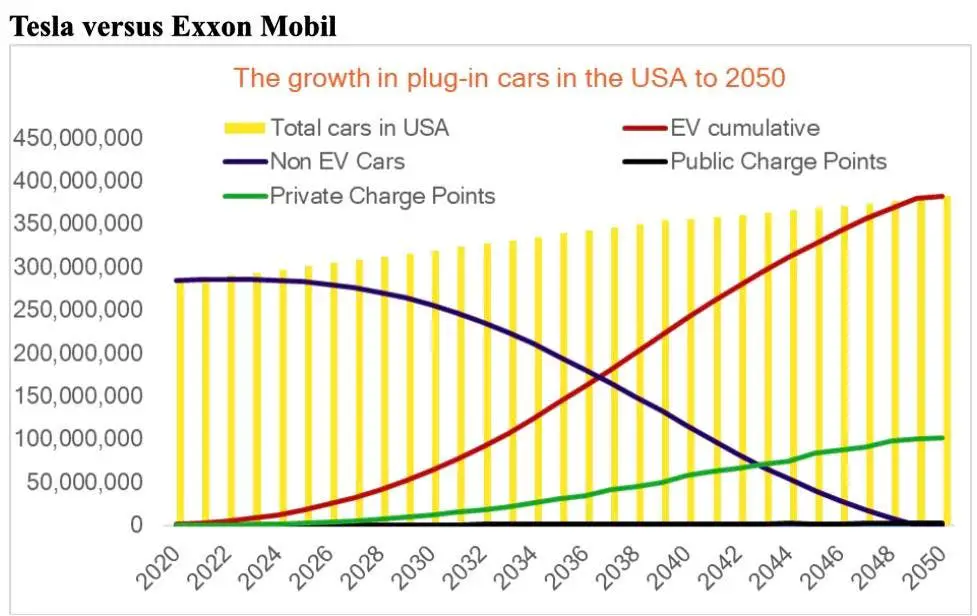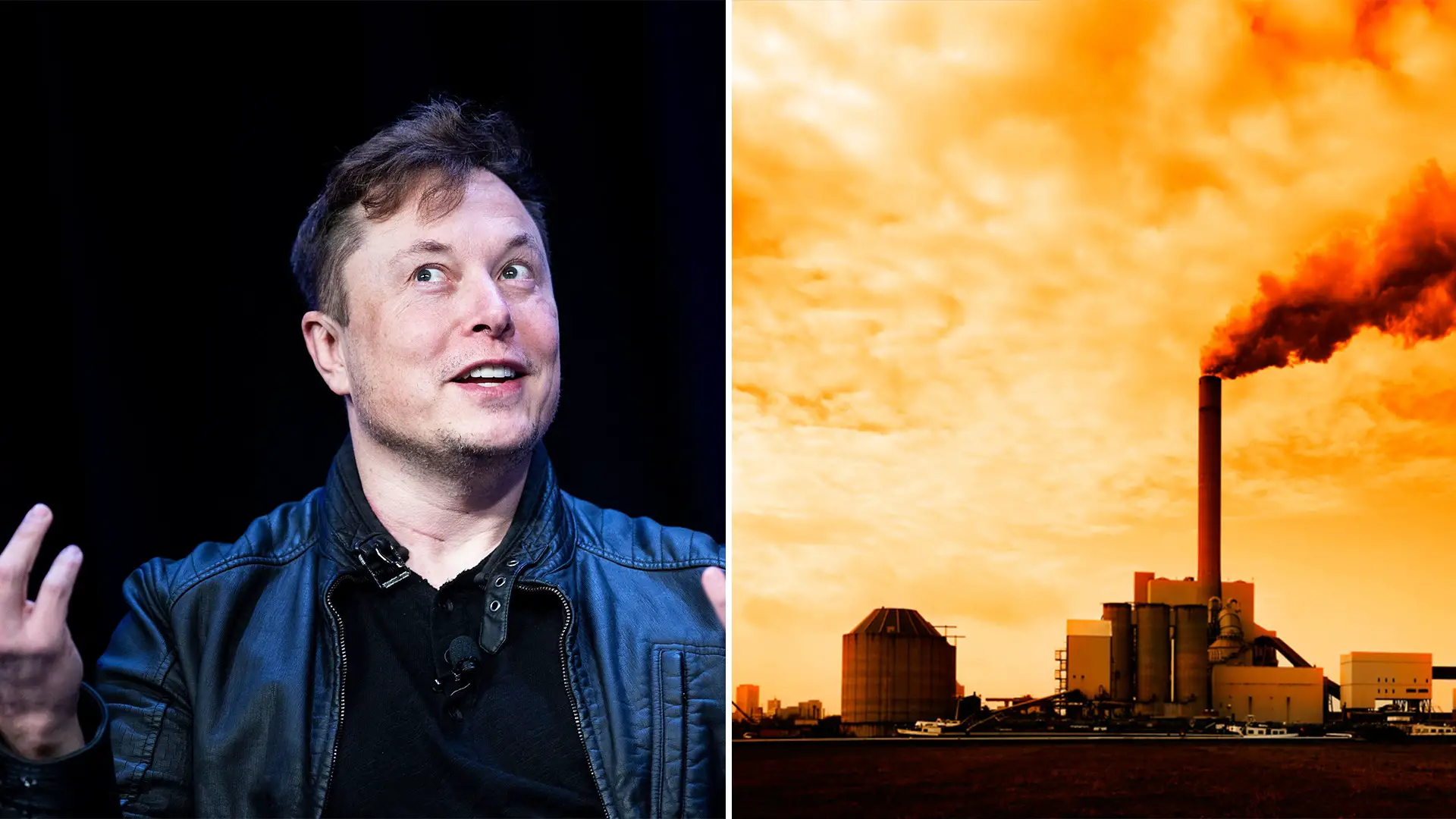Are CEOs from the oil and automobile industries burying their heads in the sand? (Perhaps looking for additional oil reserves?) Is Musk correct in his prediction that the fossil fuel sector will be phased out? Rethink Energy (no relation with RethinkX), a UK-based research and analytical company feel so.
“Come 2027/8, Electric Vehicle sales will surpass the growth of pandemic fossil fuel recovery, and oil will be squeezed,” writes Lead Analyst Peter White in a recent email. Oil quickly into bankruptcy.
Oil will begin to falter sooner if overall automobile sales do not recover from the pandemic (which I predict) within 5 years. In any case, just one or two oil firms survive 2030, but only as sick actors that have outlived their usefulness.

Our projections imply that global auto sales will rebound to pre-pandemic levels in five years and that oil sales would recover to 2019 levels in 2025 or 2026, then decline at a pace of 5% per year (the pandemic was only 9.5 percent).”
As seen in the graphs above, the oil sector will not rebound to pre-2019 levels, and electric vehicles will control the roadways throughout the world well before any prohibitions are enacted. It will not be limited to Norway.
The possibility of global oil infighting within and outside OPEC+, as well as the desecration of a number of emerging economies still reliant on oil but unable to compete with Saudi Arabia, Qatar, Russia, and the United States as prices fall, will lead to massive international unrest, debt defaults, and currency depreciation.
Despite the fact that investors and government debt agencies are well aware that this has been on the cards for some time, a worldwide meltdown is not ruled out. Its abruptness will be what makes it so stunning.
Prices will never rise again, and keeping oil flowing in increasingly lower volumes until the final 100 million ICE cars are on the road will be more than a struggle, with rewards going to a tiny number of corporations with a limited number of employees.
The oil business will, for all intents and purposes, be a thing of the past, and its asset base will be annihilated. From roughly 2035 onwards, the cleantech sector will generate so much riches that investors will scarcely notice the passing of oil, much alone gas, which will follow it soon after.
White believes that the US electric vehicle market will grow faster than the rest of the world. Tesla, Rivian, Fisker, and Lucid, among others, have ambitious growth ambitions.

Both Ford and GM are releasing new electric vehicles on a regular basis, trying to maintain market dominance. Demand for Ford’s F-150 Lightning and Mustang Mach-E has outstripped manufacturing, necessitating constant upgrades to the blueprints.
Volkswagen will begin producing electric vehicles in the United States shortly, and Asian automakers are planning to import them as well (Vinfast from Vietnam is a recent example).
This year’s Super Bowl had eight electric vehicle advertisements, all of which were well worth seeing. Many new facilities are being created as a result of collaboration between automakers and battery producers.

By 2036, 100% of all automobiles sold in the United States will be electric vehicles, and by 2037, EVs will account for more than half of all vehicles on American roadways. By 2049, all automobiles in the United States will be zero-emission vehicles, with the vast majority of them being electric vehicles.
The United States’ overall automobile fleet is growing more slowly, but it is still on track to reach 383 million cars by the conclusion of this time, up from 287 million now. For the first time, a study focuses on the rate at which the EV shift is taking place, rather than preserving any hope for the oil companies just because they are customers. We hope you find it entertaining.

